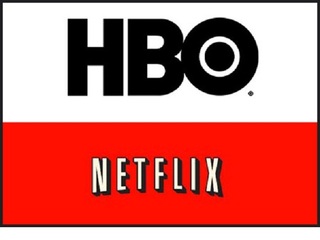
Why HBO sucks-or, cord-cutting in the age of GoT
The Game of Thrones season finale is this weekend. How will you watch?

If you watched last week’s episode of Game of Thrones, you’re probably still in bed, dealing with your existential dread. You might be wondering why you should bother getting up if the show’s producers can lie to your face and make you think everything’s fine, and then BAM—kill off the second-hottest character on the show (Jon Snow is the hottest—everybody knows that).
And it doesn’t help that your other nerd friends are all, “If you had read the books, you would’ve known this was going to happen and then you wouldn’t have gotten so attached to them.” And you’re all, “I’m trying to read the books but it’s hard! Because pages!”
This weekend is the GoT season finale and it’s bound to be epic. Fighting! Torture! Blood! Boobs! Wolves! Could it possibly eclipse the season three premier episode as the most pirated TV episode of all time?
That’s right. The season three premier of Game of Thrones was the most pirated episode in TV history, with more than one million viewers downloading the episode the day after it aired. At one point, more than 163,000 people were simultaneously sharing the same torrent. Game of Thrones was the most pirated show of 2012, according to TorrentFreak, which estimates that 4.3 million people downloaded the season two finale.
So while the GoT season finale will no doubt blow ALL MINDS EVERYWHERE, some of us will not be able to enjoy the experience legally or comfortably. Why? Because we don’t have cable. I’m talking specifically about cord-cutters, who are stuck with zero legal options for accessing recent GoT episodes, short of reinstalling cable and subscribing to a package they don’t want.
I happened to get into Game of Thrones shortly after I got rid of cable in favor of a mix of Amazon Instant Video, Netflix, and Hulu. But seasons one and two were already available on Amazon, so I bought them all and binged. And then it got to the end, and I was ready to move on to season three…but there was no way to purchase the episodes online. Not on Amazon, not on iTunes, not even on HBO’s website. For a second, I got excited when I learned about the HBO GO app, but was crushed to discover I had to have a traditional subscription in order to use it.
I reached out to HBO to demand an explanation. A spokesperson responded:
“For now, we have no plans to offer a standalone HBO GO streaming service. The economics simply do not support such an offering at this time.”
Said spokesperson would not go into the economics and explain to me why HBO will not accept my money.
So let’s break this down: I’m begging HBO to let me give them money. HBO is saying, “madam, you are too kind, but we must decline” (paraphrased). Meanwhile, Game of Thrones is the most pirated TV show in history—losing out on some $18 million on the season two finale alone.
HBO CEO Richard Plepler explained recently why HBO refuses to move along with the current rate of progress: namely, that the broadband-only market is simply too small. Approximately 101 million households in the U.S. buy television, and HBO has penetrated less than a third of that customer base. And the people who watch HBO are the people who tend to watch more TV in general—the average household in America watches 241 hours of TV a week, while the average HBO household watches 287 hours of TV.
Plepler said HBO would rather focus its energy on marketing to the 70 million households that buy TV but don’t yet have HBO, as the infrastructure costs of marketing to broadband-only users “is not particularly compelling.”
There’s something incredibly patronizing about a CEO telling me, “I know you think you want my product, but you don’t want it as much as you think you do because you’re not my target demographic.”
Part of the issue comes down to the way HBO is promoted and packaged by its cable partners. Plepler likened it to being a soft drink company and selling your drink on the shelves with all the other soft drinks, as opposed to partnering with the grocery store to have your soft drink promoted at the front of the store in a giant soda pyramid.
More likely, HBO has worked out a deal with its partners: they devote their resources (customer service reps) to aggressively promoting HBO, and HBO will make sure that its content is wholly inaccessible outside of cable subscription packages.
Currently, viewers in Nordic countries are the only ones in the world who can watch content via HBO GO without having to subscribe to a bigger cable package. And Plepler admitted at Nomura’s Media & Telecommunications Summit last week that the stand-alone streaming strategy is actually working out well in the Nordic countries. But he said that markets are different and what works in one might not work in another.
That didn’t stop Plepler from hinting at the possibility of a stand-alone option some time in the future. While he didn’t give any concrete details, he suggested that HBO was working with engineers on HBO GO to ensure consumer “flexibility” and “optionality.”
But a report from Wall Street analyst Craig Moffett points to an unsustainable future for pay TV on its current track. Pay TV penetration is now “unmistakably shrinking” while programming costs are growing at an unsustainable rate. Moffett writes in the report that the struggle between Web TV proponents and content providers is a battle between the “technologically possible” and the “economically optimal.”
“Those who expected revolution were willfully blind to the economics of the content providers, for whom the current model, where every Pay TV subscriber pays for every channel whether they watch it or not, is virtually impossible to top online.”
Nevertheless, says Moffett, cord-cutting is real, and Pay TV subscriber growth went from 1.8 million additions in 2009 to zero in 2012.
Cord-cutters are still in the minority, but they’re a growing population. The Convergence Consulting Group estimates that by the end of the year, 4.7% of U.S. households will have cut the cord in favor of a mix of Netflix, Over The Air, Online, and more.
As more people cut the cord—or never get a cord to begin with—operators are raising their prices, which in turn causes more customers to cut the cord.
Meanwhile, Moffett says that operators’ flirtations with online distribution has become “a massive game of chicken”:
Each operator has gladly accepted a bit of extra revenue by licensing just a little more content to Netflix or fill-in-the-blank, all the while hoping that their peers would pursue a path of rectitude that would ensure that a critical mass of content would never be available outside the garden walls. Little by little, they have become hooked.
So where does that leave you, little cord-cutter with no HBO, as the Game of Thrones season finale looms closer? It leaves you either downloading the episode illegally through a torrent site, or borrowing a friend’s HBO GO password. I actually do a little of both.
Image source: forbes.com
Related News


